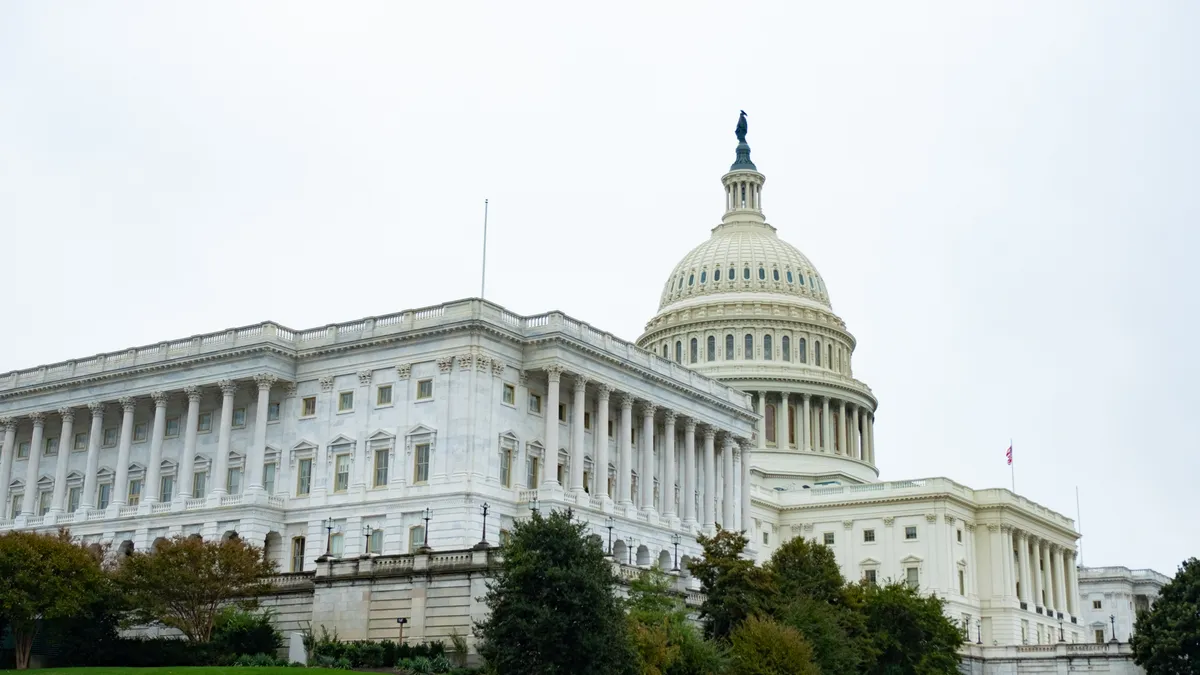Dive Brief:
-
The American Council on Education told Senate leaders this week it has concerns about recent federal proposals that would create stricter requirements for colleges' reporting of foreign gifts and contracts.
-
Among the measures ACE is objecting to is one that would amend the Higher Education Act. Institutions would need to disclose any foreign donation or contract of $50,000 or more in a year, down from a threshold of $250,000.
-
Higher ed groups sought clarity from Trump's Education Department over foreign dollars reporting requirements, which the administration tightened.
Dive Insight:
The Trump administration accused colleges of largely abandoning their legal duty to report large foreign gifts and contracts to the federal government. It opened investigations into 19 high-profile institutions' foreign financial ties — only a few of which have since been closed — and it issued a stringent new reporting checklist. The department also said it could revoke federal financial aid for colleges that did not comply with the law.
Although a new administration has taken over, bipartisan concerns about foreign influence on colleges, particularly from China, has continued.
Provisions to strengthen colleges' reporting mandates are incorporated in legislation, the Endless Frontier Act, being fast-tracked in the Senate. While ACE supports parts of the bill that mean to invest more in science and technology research, it is “deeply concerned" about others, its president, Ted Mitchell, wrote in a letter to Senate leaders this week.
Lowering the reporting threshold to $50,000 would “vastly" increase the number of donations and contracts that colleges would need to report, Mitchell wrote, “needlessly" involving community colleges and small private schools, “even though the risks posed by such small gifts or contracts are minimal."
Institutions with more than $5 million in research and development expenditures in any of the last five years would also need to track contracts and gifts of any dollar amount that a foreign source gave to their researchers.
Colleges would need to maintain a searchable database of these financial transactions, and have a plan in place to combat a foreign entity attempting to gather information “through espionage."
ACE wrote that this provision would invite the “collection of an ocean of data, much of it trivial and inconsequential."
Federal prosecutors have gone after scholars who did not disclose their links to foreign nations. Three researchers and a graduate student last year were charged with visa fraud, having been accused of lying about their affiliation with the Chinese military. ACE supports using such legal avenues to address foreign influence on researchers, Sarah Spreitzer, its director of government and public affairs, said in an interview.
“But it's unclear how it would be helpful to track a faculty member having lunch with a visiting scholar," Spreitzer said as an example of an expense colleges may be required to keep tabs on under the new legislative proposal.
ACE also opposes another recent proposal to expand the powers of an interagency group that monitors foreign transactions involving U.S. businesses to review some of colleges' international gifts and contracts.
Spreitzer said ACE is optimistic Congress will make changes to the latest draft Senate legislation. The organization is also talking with the department about foreign gift reporting requirements, she said.
The Association of American Universities was similarly skeptical of the legislation. Its president, Barbara Snyder, said in a statement that while AAU supports the bill's “core goals," it fears the proposal “may become overloaded with extraneous and complicated provisions that will undermine its primary goals" and AAU's and other groups' support for it.














